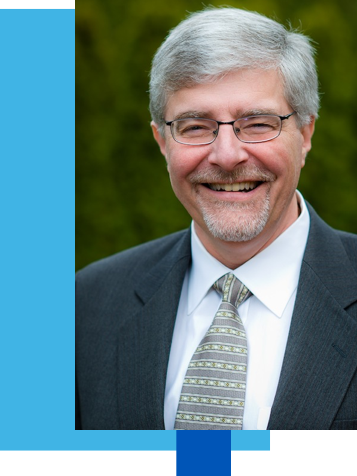
Welcome to the
Department of Cellular &
Physiological Sciences!
Edwin Moore, PhD
Professor & Head
The Department of Cellular & Physiological Sciences (CPS) was formed in 2004, under the leadership of Dr. Christian Naus, as a merger between the Departments of Physiology and Anatomy and Cell Biology. These two founding departments were established in 1950 as part of the new UBC Medical School, and their first Heads, Dr. D. Harold Copp and Dr. Sidney Friedman, remained in their positions until 1980. Under the leadership of Dr. Copp and Dr. Friedman, these departments played a vital role in establishing medical undergraduate teaching, which remains a central mandate for the CPS department. An Honours Degree Program in Physiology and two courses in Anatomy were developed later for students in the Faculty of Science, and these remain as oversubscribed courses in the UBC academic calendar. The popularity of these courses is sustained by current faculty, many of whom have received UBC Killam Teaching Awards and authored some of the internationally most highly regarded textbooks in their disciplines. This commitment to undergraduate science teaching remains a core component of our mission, and we will soon be transforming our science program into a new Cellular, Anatomical and Physiological Sciences (CAPS) program, with the objective of offering both Honours and Majors streams. In addition to our undergraduate programs in science, CPS faculty members have primary responsibility for all aspects of physiology, gross anatomy, histology, and neuroanatomy teaching in the MD Undergraduate program. Faculty and postgraduate teaching assistants also run a wide range of laboratory courses and provide tutoring throughout all of the teaching blocks in the first two years of MD undergraduate training. The department is responsible for the Body Donation Program (a provincial resource used by both teachers and researchers) and also provides gross anatomy teaching to students within the Faculty of Dentistry and in the allied health professions, as well as workshops for residency training and postgraduate continuing medical education. Other teaching innovations include the creation of a “virtual slide box” for histology students and internet-based teaching methods in Neuroanatomy for UBC’s medical students at other university campuses throughout British Columbia.
Over the years, our faculty members have made outstanding contributions to research. Major achievements include the discovery of four hormones, including calcitonin and teleocalcin (Dr. Copp) and GIP and motilin (Dr. John Brown), and seminal contributions to the fields of excitatory and inhibitory amino acids (Dr. Hugh McLennan), hypertension (Dr. Friedman) and muscle function (Dr. Bill Ovalle). As you will see when you visit the web pages of our current faculty members, a tradition of outstanding discovery research, which promises to transform medical knowledge and human health care, remains central to the CPS department’s vision.
With the formation of CPS, most of our faculty moved to the Life Sciences Institute when it opened in 2005. Other CPS Faculty members have research laboratories in the Brain Research Centre or the Biomedical Research Centre, both of which are in close proximity to the LSI on UBC’s Point Grey Campus. These research centers provide outstanding facilities for research and postgraduate teaching, and CPS faculty members contribute to teaching in a variety of graduate programs, including the Graduate Programs in Cell and Developmental Biology and Neuroscience. Other research strengths within the CPS department include faculty who are core members of the LSI Cardiovascular, Diabetes & Obesity, and Cell and Developmental Biology research groups. Through collaborative research interactions with UBC faculty based at other sites, our faculty members strive to translate their basic research findings into practical applications in the health care system of British Columbia. These interactions will be facilitated by improving internet-based conferencing and data exchange portals and by engaging faculty on other sites as adjunct or associate faculty members of the CPS department.
As you explore our website, I hope you gain a sense of how privileged I feel to be given the opportunity to work with such a dynamic and progressive group of colleagues who create an exceptional academic environment in which undergraduate and postgraduate learners and postdoctoral research scientists from across the globe can excel and enjoy the truly remarkable place in which we live and work.